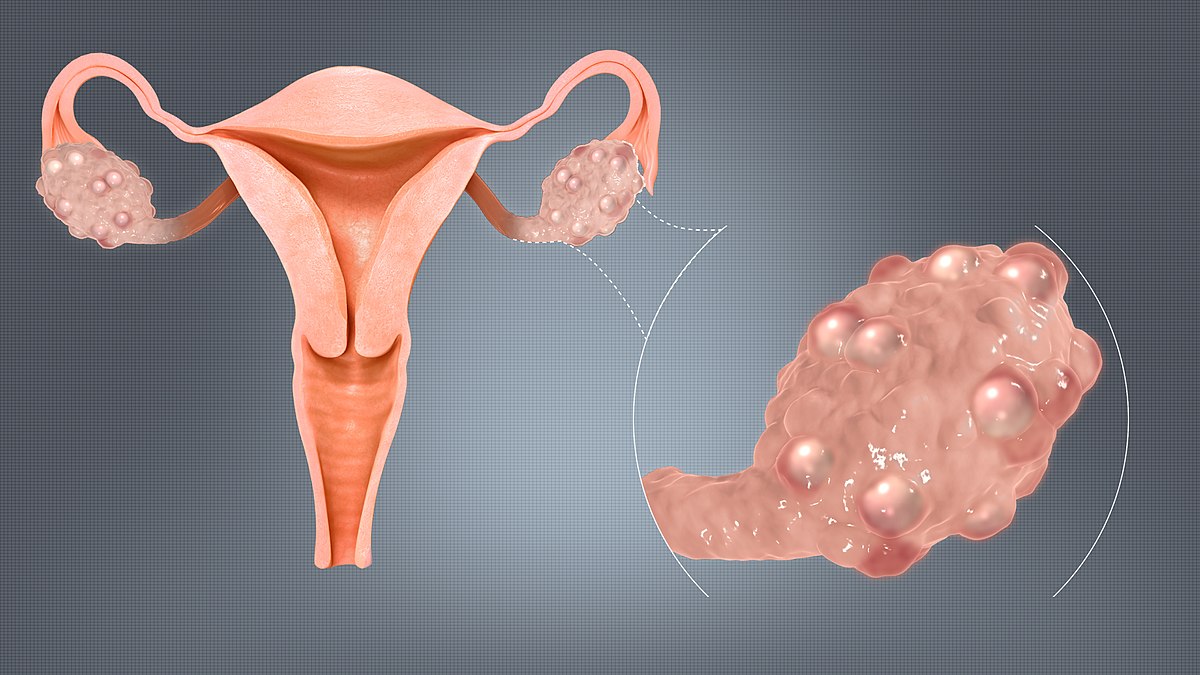By Sameer Ahmad
Polycystic Ovary Syndrome, commonly known as PCOS, is increasingly emerging as a significant health concern for women in Kashmir and across India. Once considered a condition affecting only a fraction of women, PCOS is now being diagnosed more frequently among adolescents and young adults, raising alarm bells for both public health officials and medical practitioners. The growing prevalence of this hormonal disorder underscores the urgent need for awareness, early intervention, and a shift in lifestyle habits.
PCOS is a complex endocrine disorder that occurs when a woman’s ovaries produce higher-than-normal amounts of male hormones, known as androgens. This imbalance interferes with the regular release of eggs during the menstrual cycle, often resulting in the formation of multiple small cysts in the ovaries. The manifestations of the disorder are varied and can include irregular menstrual cycles, unexplained weight gain, acne, and excessive hair growth. For many women, these symptoms are just the tip of the iceberg. Left unaddressed, PCOS can lead to serious long-term health complications, including infertility, type-2 diabetes, hypertension, cardiovascular disease, endometrial cancer, and even mental health issues such as anxiety and depression.
The causes of PCOS are multifaceted. Genetics plays a significant role, with women having a family history of the condition being more susceptible. Lifestyle factors, however, cannot be ignored. Sedentary habits, poor dietary choices, and chronic stress exacerbate hormonal imbalances, creating a vicious cycle that makes management more challenging. Modern lifestyles, coupled with the rising prevalence of obesity among women in the region, have created a fertile ground for the disorder to thrive. In Kashmir, as elsewhere, the combination of high-calorie diets, reduced physical activity, and mounting academic and professional pressures is taking a tangible toll on women’s reproductive health.
Despite the rising numbers, awareness about PCOS remains distressingly low. Many women dismiss early symptoms as routine menstrual irregularities or cosmetic concerns. The lack of timely medical intervention often allows the disorder to progress unchecked, making management more complicated and less effective. Healthcare experts emphasize that early recognition and consistent follow-up are critical to preventing the cascade of health complications associated with PCOS.
Treatment for PCOS is not a one-size-fits-all solution. While the disorder itself cannot be completely cured, its symptoms and long-term effects can be managed effectively. Lifestyle modification remains the cornerstone of treatment. Maintaining a healthy weight through balanced nutrition and regular exercise helps regulate hormone levels and improves the body’s response to insulin. Beyond physical interventions, counseling and psychological support are increasingly recognized as essential components of care, addressing the stress and anxiety that often accompany chronic health conditions.
For women seeking medical intervention, treatment plans are highly individualized. Depending on the specific symptoms and goals—whether it is controlling irregular cycles, managing weight, addressing acne, or achieving pregnancy—healthcare providers may prescribe hormonal therapies, insulin-sensitizing medications, or fertility treatments. However, the success of medical interventions is closely linked with adherence to lifestyle changes, highlighting that prevention and proactive management are inseparable from medical care.
Alarmingly, there is a visible trend of PCOS affecting younger age groups, including teenagers. This signals the urgent need for awareness campaigns targeted not only at adult women but also at adolescent girls and their families. Early education about diet, physical activity, stress management, and menstrual health could significantly reduce the incidence and severity of PCOS. Schools, community organizations, and healthcare institutions must collaborate to create a support network that encourages open conversations about women’s reproductive health, breaking the stigma that often prevents timely consultation.

Kashmir, with its distinct lifestyle and dietary patterns, is witnessing this emerging crisis firsthand. While the valley has made progress in healthcare infrastructure, gaps remain in preventive care and public education regarding endocrine disorders. Addressing PCOS requires a multi-pronged approach: widespread awareness, accessible healthcare services, lifestyle interventions, and emotional support. Women must be empowered to recognize early warning signs and seek help promptly, rather than accepting symptoms as inevitable or cosmetic.
The rise of PCOS is more than a medical issue; it is a societal challenge that reflects changing lifestyles, growing stress levels, and insufficient health awareness. For a region that values the well-being of its women as the backbone of families and communities, tackling PCOS is not just about managing a hormonal disorder—it is about securing the health, fertility, and future of an entire generation. Ignoring it now risks turning a manageable condition into a chronic health burden that will resonate for decades.
In confronting PCOS, awareness is the first line of defense, lifestyle is the foundation of treatment, and timely medical guidance is the key to long-term health. Kashmir stands at a crossroads: the opportunity exists to turn rising concern into meaningful action, ensuring that women here can lead healthy, productive lives without the silent burden of an avoidable disorder.
